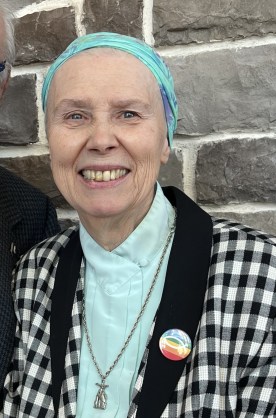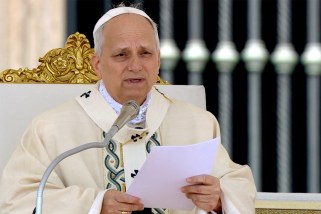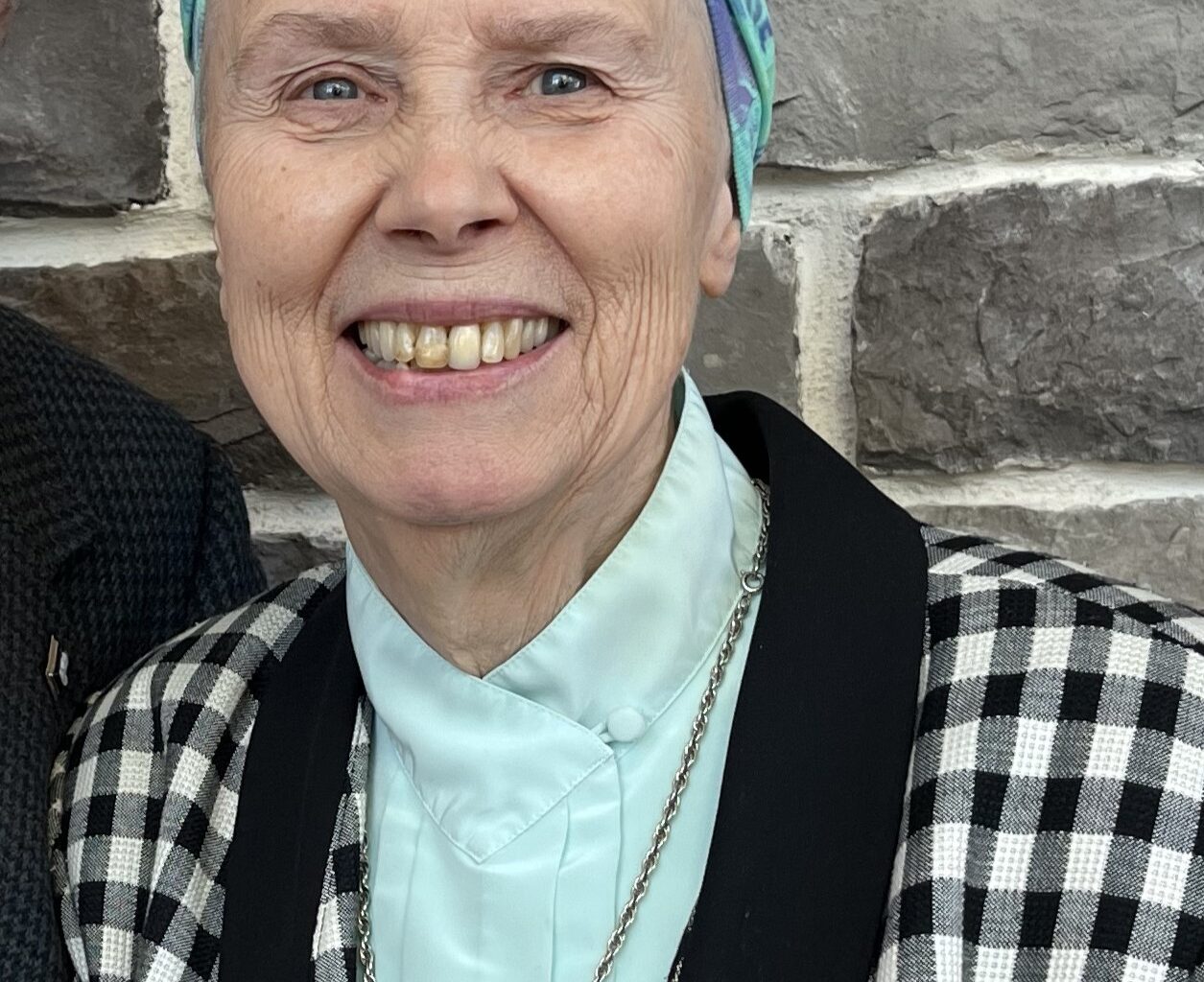 In a reflection for The National Catholic Reporter on the young papacy of Pope Leo XIV, Sister JeannineGramick , SL, observed that both fears and hopes regarding LGBTQ+ inclusion have arisen concerning how the pontiff will address LGBTQ+ issues.
In a reflection for The National Catholic Reporter on the young papacy of Pope Leo XIV, Sister JeannineGramick , SL, observed that both fears and hopes regarding LGBTQ+ inclusion have arisen concerning how the pontiff will address LGBTQ+ issues.
On the one hand, the fact that Pope Leo recently met with Father James Martin, SJ, a Catholic LGBTQ+ advocate should result in “a time for rejoicing among LGBTQ+ people,” the nun who co-founded New Ways Ministry stated.
Yet, much remains to be seen, she noted. “Leo has publicly stated that he will continue the path of his predecessor regarding LGBTQ+ ministry. . .” writes Gramick, referring to Martin’s report that Leo provided the same message as Pope Francis in speaking of his LGBTQ+ ministry.
But how will Pope Leo’s actions affirm such a message, Gramick, who has over 50 years of ministry with the LGBTQ+ community:
“Will Leo meet with LGBTQ+ people, will he affirm their right to life in countries in which they can be executed, will he eat and drink with transgender people, as Francis did?” Gramcik asks. “Will he greet the more than 1,000 LGBTQ+ Holy Year pilgrims who will pray in vigil at the Jesuit Church of the Gesù in Rome on Friday (Sept. 5) and walk to St. Peter’s Basilica the following day? I am hoping that his actions will affirm his hospitable words.” [Editor’s note: Pope Leo did not do either of these actions.]


Pope Leo XIV offering his homily at his inauguration Mass.
Although harmful doctrinal language that speaks of LGBTQ+ individuals as “intrinsically disordered” has not changed–a fact which then-Cardinal Robert Prevost affirmed in 2023–Gramick remains hopeful that the spirit of synodality may provide a healing way forward. She writes:
I firmly believe that this offensive language will ultimately be excised from the Catholic catechism through Francis’ signature project of synodality, which Leo has also wholeheartedly endorsed.
“Synodality is a process of respectful listening and sharing, a process of trying to get into the other person’s shoes, to feel and to empathize with their understandings….Our church, indeed our whole world, needs to be a place of discussion and dialogue where everyone can feel free to share their experiences and their truth. This is the path of a missionary in an inclusive church.”
The process of true listening and the process of change are often long and can be painful, Gramick notes, but we can be assured that these processes are not futile. “Like all living things, our church’s doctrines develop over time, revealing more of the truth as we remain faithful to the core of our tradition,” she writes. And she offers some advice in the meantime:
“But what, my LGBTQ+ friends ask me, am I to do in the meantime? I remind them that the Catholic Church’s most important teaching is the primacy of one’s own conscience. As another pope (Benedict XVI) once wrote, ‘Over the pope as an expression of the binding claim of ecclesiastical authority, there stands one’s own conscience, which must be obeyed before all else, even if necessary against the requirement of ecclesiastical authority.’ “
So, while Pope Leo will be working on other issues of grave concern, his commitment to allowing Pope Francis’ spirit to continue is a positive sign. She concludes:
“So until we see that change in the church’s sexual teaching, we have been blessed with Leo XIV, whose priorities to work for peace, particularly in Ukraine, Gaza and Myanmar, as he told Martin, include a commitment to a church for “todos, todos, todos,” in the words of Francis. That should make LGBTQ+ people and their allies feel secure.”
—Phoebe Carstens, New Ways Ministry, September 15, 2025
Related
